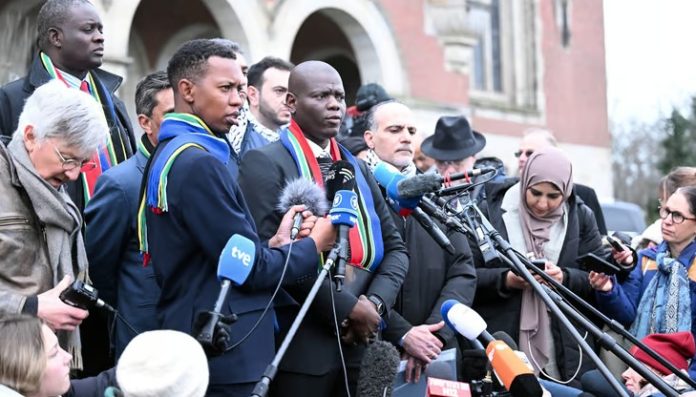– Mahboob Thaha
In a significant move for global human rights advocacy, South Africa has taken a strong stand against the alleged genocide and terrorism perpetrated by Israel in Gaza, bringing these issues to the forefront at the International Court of Justice (ICJ). This bold action has put the United States, Israel, and their allies in a challenging position, facing scrutiny for purported atrocities, including the killing of innocent children and women.
South Africa’s firm stance underscores its independence from American influence, both politically and economically. The country, which achieved its freedom through Nelson Mandela’s relentless struggle against racial discrimination, is once again drawing global attention and admiration by holding Israel accountable for human rights violations. By bringing Israel to the ICJ, South Africa is providing the support to Palestine that many believe should have come from other Arab nations.
In June 2022, the Israeli cabinet in Tel Aviv decided to construct a controversial wall that would enclose Jewish settlements and facilitate future expansions. This project has significantly burdened Palestinians, leading to over 150 legal complaints questioning the wall’s legality. The construction has displaced many Palestinians from their farms and places of employment, and has separated families. Despite these serious concerns, Israel’s Supreme Court approved the wall’s construction. However, the ICJ later ruled the wall illegal, demanding Israel to compensate those affected. Given Israel’s track record of ignoring United Nations resolutions, compliance with the ICJ’s ruling seems unlikely. Nevertheless, the pursuit of justice through legal channels remains an important endeavor.
During the initial ICJ session, three representatives from Jordan participated, led by the renowned international judge Aun al Kasakk, who had previously presided over the case regarding Israel’s wall. The Arab League and the Muslim World League, at a summit in Saudi Arabia, were tasked with gathering evidence to bring Israel’s alleged mass killings in Gaza to the ICJ. Jordan may consider raising the issue in the UN General Assembly and Security Council through the Arab League, but the potential impact of America’s veto power casts doubt on the outcome.
South Africa, a nation without aspirations of superpower status and geographically distant from Palestine, stood up against what it described as prohibited genocide under the 1948 Geneva Convention. South African legal experts, drawing on an 84-page report detailing human rights violations, decided to approach the ICJ. Since the African National Congress came to power under Mandela, the country has been a vocal advocate for justice. Mandela once declared, “Our freedom is incomplete without the freedom of Palestine,” and South Africa continues to honor this legacy by supporting Palestinian independence and freedom.
South Africa’s courageous stand serves as a powerful reminder of the importance of upholding international human rights and justice, inspiring others to follow suit.




